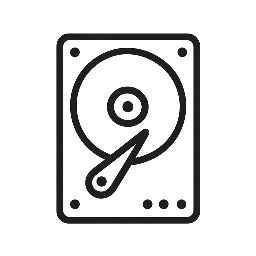Introduction
In today’s digital age, data security and sovereignty are more crucial than ever. Whether you’re a professional, a student, or just aiming to keep your personal memories safe, knowing your storage options is vital. From external hard drives to USB flash drives and Network Attached Storage (NAS), each storage solution offers unique advantages and possible drawbacks. In this guide, we’ll dive deep into what each of these options can offer, helping you make an informed decision.
External Hard Drives
Pros:
- High Storage Capacity: External hard drives typically offer substantial storage space, ranging from 256GB to several terabytes, accommodating large data volumes easily.
- Portability: Being compact, they are easy to transport, making them ideal for users needing mobile storage.
- Cost-Effective: Per GB, external hard drives often provide the best value compared to other storage solutions.
Cons:
- Physical Damage Risk: Their portability can also be a downside, as they are vulnerable to physical damage, which could lead to data loss.
- Speed Limitations: External hard drives can have slower data transfer speeds compared to newer technologies like SSDs.

USB Flash Drives
Pros:
- Extreme Portability: They are small and handy, easily fitting into pockets or on keychains.
- Ease of Use: Plug-and-play capability makes them straightforward for anyone to use across different devices.
Cons:
- Limited Storage Capacity: They typically offer less storage space compared to other storage devices.
- Durability Issues: USB flash drives are susceptible to being lost and to physical damage.

Network Attached Storage (NAS)
Pros:
- Centralized Storage: NAS provides a central point to store all your data accessible from any device on your network.
- Data Redundancy: Many NAS systems support RAID configurations, which provide data protection against hard disk failures.
Cons:
- Higher Cost: NAS systems are generally more expensive than other types of storage solutions.
- Complexity: Setup and maintenance of NAS can require more technical knowledge.

Conclusion
Choosing the right storage solution depends on your specific data needs and circumstances. External hard drives offer great capacity and value, USB flash drives provide convenience and portability, and NAS offers robust networked storage with redundancy. Evaluate your priorities to make the best choice for maintaining your data sovereignty and security.
